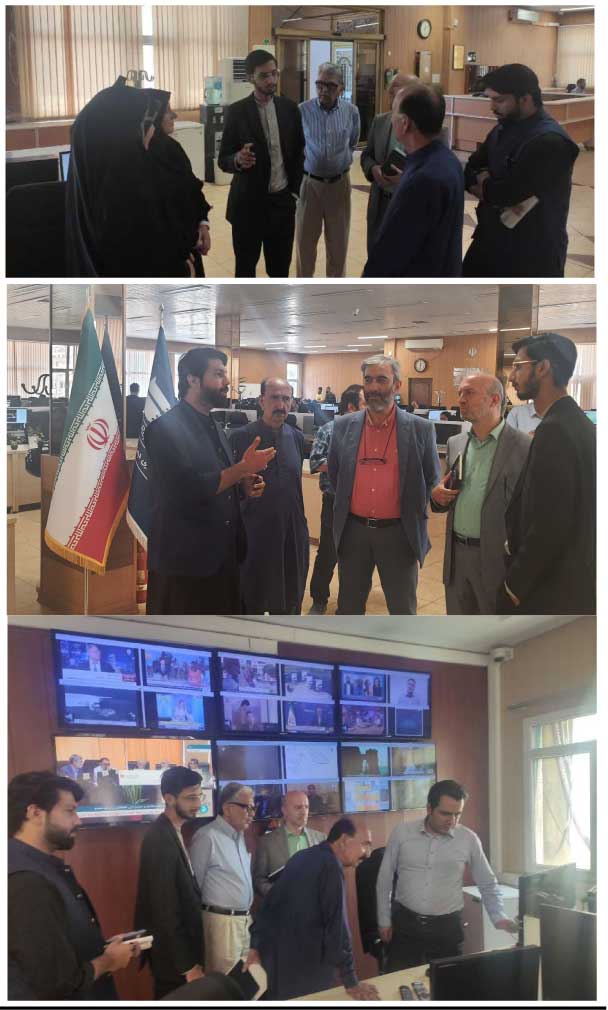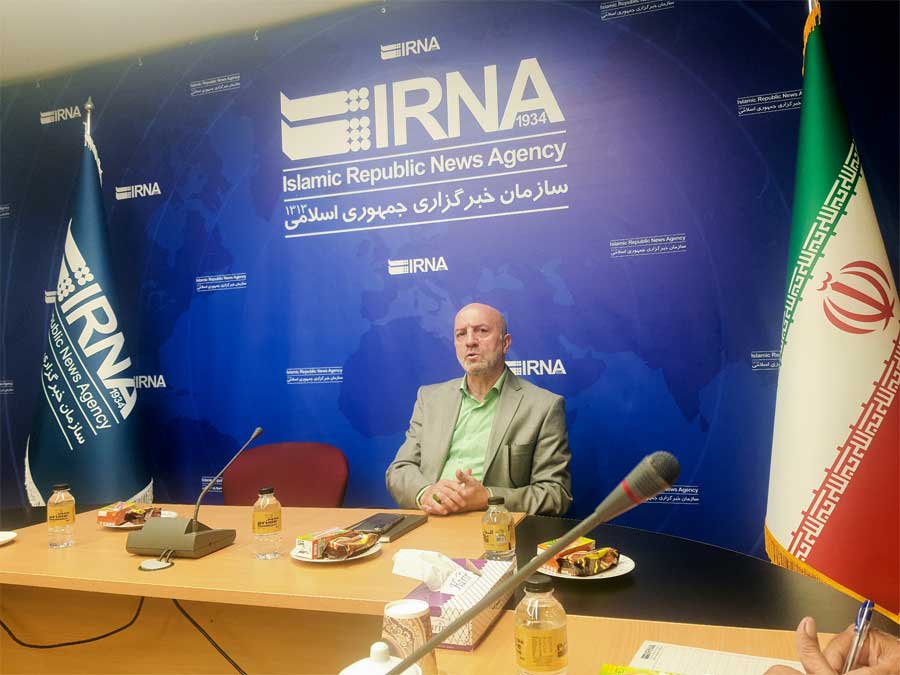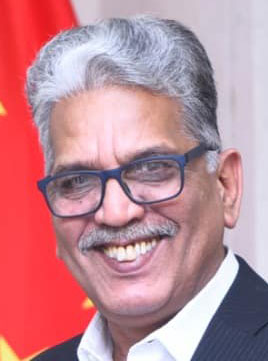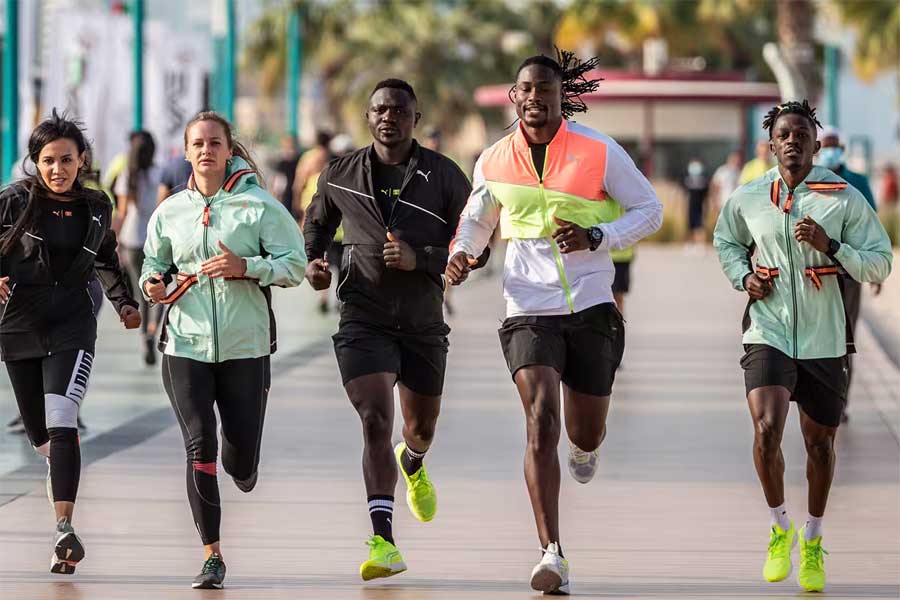
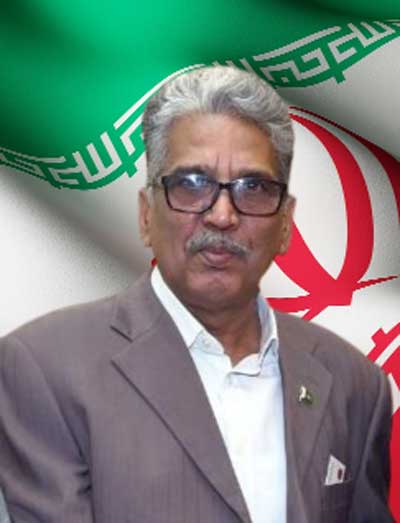
In a world where media plays a pivotal role in shaping public opinion and disseminating information, the Islamic Republic News Agency (IRNA) stands as a testament to the power of journalism in Iran. During our three-member journalists’ delegation visit to Iran, courtesy of the Iranian Cultural Center, we had the privilege of experiencing firsthand the significance and influence of IRNA, which serves as the primary news source in Iran.
On the second day of our journey, we encountered a change in our hosts. Instead of Muhammad Reza from the Foreign Office of Iran, Ali Fatimi from the Islamic Cultural & Communication Department took over our escort duties. Nevertheless, Zain Naqvi continued to accompany us as our interpreter from the Iranian Cultural Center, ensuring that language barriers did not hinder our interactions.
Our day commenced with a hearty breakfast at the hotel before embarking on an enlightening journey into the world of Iranian journalism. Our first stop was at the prestigious Islamic Republic of Iran News Agency (IRNA).
IRNA, established in 1934, has played an integral role in Iranian media for nearly a century. It stands as the cornerstone of news reporting within the nation and has earned a reputation for its comprehensive and unbiased coverage of national and international events. With a vast network of reporters and correspondents, IRNA offers timely news spanning politics, economics, culture, and sports.
The agency’s significance is not limited to Iran; it extends internationally. As the official news agency of the Islamic Republic, IRNA serves as a vital link connecting Iran with the rest of the world. Its commitment to journalistic integrity and impartial reporting has garnered recognition on both the domestic and global stages.
Reza Khushlehja, the Editor for International Broadcast received and briefed us about IRNA and provided us with an insightful introduction to IRNA’s operations. Notably, IRNA broadcasts in nine major world languages and initiated English and Arabic services four decades ago. The agency has a presence in 48 countries, including Pakistan, and maintains correspondents in ten nations. Additionally, IRNA has a strong footprint within Iran itself, with representation in all 31 provinces and 24 cities.
During our visit to IRNA, Khushlehja expressed his concern about the negative propaganda directed at Iran and Pakistan by Western media. He emphasized the importance of unbiased reporting and fostering understanding between nations.
I also had the opportunity to speak during our visit, sharing my experiences in Iran and proposing an interactive session and exhibition about IRNA’s 90-year journey at the Karachi Editors Club (KEC), where I serve as the Secretary General.
Nazir Leghari, a distinguished Pakistani journalist and President of the BOL TV network, lauded the empowerment of women in Iran, particularly in the fields of science and technology. This observation highlighted the progress and inclusivity fostered by IRNA.
Owais Rabbani from GTV commended the services provided by IRNA, acknowledging its importance in promoting accurate and balanced news coverage.
Our tour of IRNA’s offices took us through different news and broadcast sections, including politics, economy, sports, literature, religion, and regional desks. Each department’s respective head provided us with valuable insights into their work and responsibilities.
A Remarkable Observation
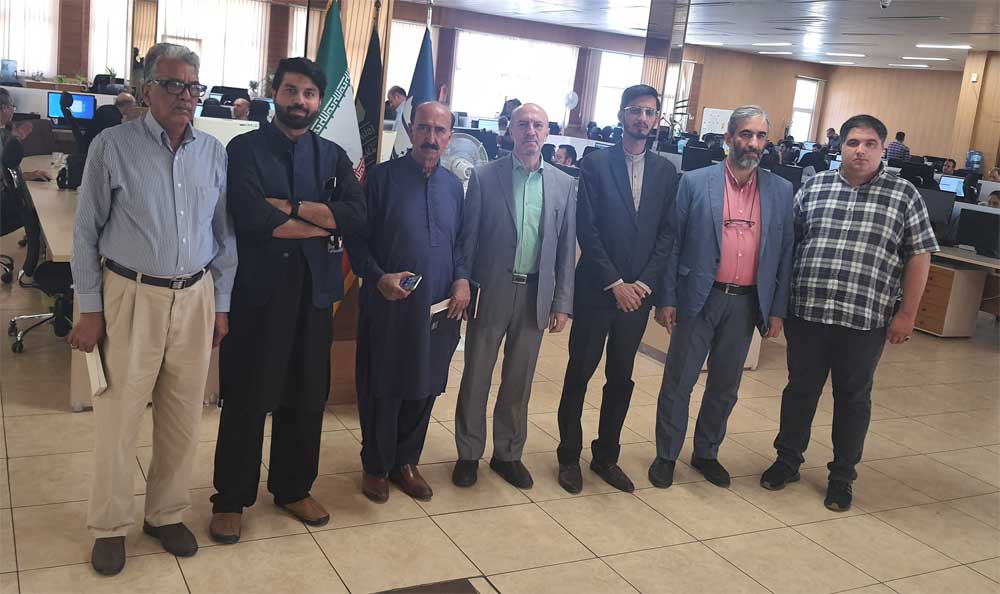
One striking aspect of our visit was the significant presence of women employees at IRNA. Reza Khushlehja informed us that women make up the majority of the workforce, accounting for around sixty percent of the agency’s employees. In total, IRNA boasts a workforce of over eight hundred individuals.
Our visit to IRNA shed light on the pivotal role this news agency plays in Iran’s media landscape. With its rich history, commitment to journalistic integrity, and expansive global reach, IRNA stands as a symbol of the power of journalism to connect nations and bridge cultural divides. As we departed from IRNA, we carried with us a deeper appreciation for the dedication of the journalists and staff who work tirelessly to provide accurate and comprehensive news coverage to the world.
Mr. Nazir Leghari recorded the visit of IRNA in Urdu in his book on this trip, and below are the translated thoughtful views expressed by Mr. Leghari.
Iranian news agency, women’s empowerment, and Khushlehja
We arrived at Karachi Airport on Saturday, July 8th, and shortly after midnight on July 9th, we departed for Tehran. On the same day, in the morning, we arrived at Imam Khomeini International Airport. We spent a busy day on Sunday, July 9th, and after visiting Milad Tower, Nature Bridge, Revolution, and Sacred Defense Museums, we also took a stroll in Book Garden. Today is July 10th. As usual, I wake up early in the morning to wake up Syed Manzar Naqvi. After getting ready, we come to the hotel’s dining hall for breakfast, which is dedicated to breakfast, lunch, and dinner. I deliberately didn’t refer to this place as a restaurant or café because it doesn’t seem like one from anywhere. We have breakfast and return shortly. In a while, our young friends, Ovais Rubani and Ali Zain Naqvi, join us and sit in the hotel lobby. Then, we all head to have breakfast in the same hall.
In the meantime, an officer from the Ministry of Foreign Affairs, Ali Fatimi, arrives, accompanied by the driver of the car. Ali Fatimi and the driver, Muhammad, were with us yesterday as well, but they kept their distance from us. Today, Mohammad Reza Shabani did not come, probably because the Ministry of Foreign Affairs had assigned him some other responsibility. In a while, Ovais Rubani and Zain Naqvi join us after having breakfast.
We discussed today’s program and the programs for the coming days with Ali Fatimi. He mentioned that at this time, we will be visiting the Iranian news agency “IRNA,” and details of the other programs will be shared later. Since we have been in journalism, IRNA has been our source for news about Iran, and we often received news from them via AFP or Reuters. Later, this news would also come to us through our own Pakistani agencies, APP or PPI.
IRNA stands for the Islamic Republic News Agency, and its name in Persian is “Khabar Gostari Jomhuri Islami.” This news agency was established nearly 90 years ago on November 13, 1934, under the name “Pars News Agency.” When this news agency was founded, it was during the time of Reza Shah Pahlavi, the father of Mohammad Reza Pahlavi, who was the last Shah of Iran. Reza Shah Pahlavi himself was a military officer and had seized power to become the king. The agency retained the name Pars News Agency until the Islamic Revolution in Iran. Two years after the revolution, in 1981, the name was changed from Pars News Agency to the Islamic Republic News Agency.
Our caravan heads towards the IRNA office. We are heading to the Vali Asr Street in the small district of Tehran. Ali Fatimi sits in the front seat of the car, next to the driver, to guide us. The car passes through the streets, highways, and alleys of Tehran and turns into a lane from a major road, finally stopping in front of the first building’s gate. Ali Fatimi getting off the car means that we have to get off too, but Ali tells us to stay in the car while he goes to inform the IRNA administration about our arrival. After a short while, he returns and takes us inside the building.
Inside, a member of IRNA’s administration greets us. He takes us to a conference room where we arrange the chairs. On one side of the table, Manzar Naqvi and I sit, and on the other side, Ovais Rubani and Ali Zain Naqvi sit. Ali Zain is responsible for translation in our conversation. Now, we are waiting for the senior officials of IRNA with whom we will have our discussion. We didn’t have to wait long. A tall and well-dressed man in a suit enters through the door with a warm smile and introduces himself. His name is Reza Khosh Lahjeh, and he indeed had a pleasant demeanor. We introduce ourselves, take our respective seats, and start the conversation.
Reza Khosh Lahjeh explains that IRNA is releasing news in nine languages, and now, Urdu is being added as the agency’s tenth language for news dissemination. We have started experimental work in this regard. We want to establish connections with Pakistani newspapers and media organizations. Our experience shows that Western media often portrays every country according to its interests and creates narratives that distort facts. We need to see our issues, transactions, and solutions through our own eyes and through our own communication channels and perspectives.
Khush Luhja informed that the news agency of the Islamic Republic of Iran has offices in all 31 provinces of Iran and almost all major cities. We operate in 48 countries, including Pakistan among the countries where our representatives are present. We have our old office in Islamabad. We have signed an MOU with Pakistan’s official news agency, APP, and both news agencies will exchange news, photos, and videos. We want experienced journalists and reporters from both countries to be present in each other’s countries. Khush Luhja revealed that in August 2023, our news agency, Arna, will begin its services in Urdu. They also mentioned that besides Islamabad, Arna intends to establish offices in Karachi, Lahore, Peshawar, Quetta, and other major Pakistani cities. We will exchange information and write articles about each other.
After the conversation with Reza Khush Luhja, I am asked to speak. I discuss various aspects of Iran, including the Iranian Revolution, the Iran-Iraq War, the Iranian economy, and industrial sectors, as well as developments in fields such as third-world politics, economics, society, science, and educational advancement. I also address issues like Palestine-Israel, Timor in Indonesia, Sudan and South Sudan conflicts, Kashmir, and the Kashmiri freedom movement from the perspective of Western media. After me, Manzar Naqvi also expresses his views. He suggests that they are prepared to host an Iran-Pakistan media conference in Karachi. We are supportive of Manzar Naqvi’s positive efforts in Pak-China friendship and acknowledge his proposal for hosting the Iran-Pakistan media conference, which is a unique and innovative idea. Following him, Owais Rabbani joins the conversation, and his conversation bridges Urdu and Persian poetry.
After these formal words, Reza Khush Luhja takes us to Arna’s International Desk, where Urdu pages are displayed on the computer, and today’s latest news is available. Here, we are in a spacious hall. We do not have such a large hall at any newspaper or news agency where various desks are working simultaneously. Our astonishment is limitless. Women are working at various desks here, and in some cases, there are more women than men. I mostly notice men around me. Women are present in significant numbers at every news desk. I express my happiness about the effective and comprehensive representation of women at every news desk and inquire about the department heads in your field. In response, it is conveyed that there is no gender distinction on this desk or any other desk. We work as journalists, reporters, and editors, regardless of gender. Our environment is friendly and pleasant. I ask about the educational qualifications required for employment here. It is explained that individuals who have mastered politics, economics, international relations, communications, media sciences, journalism, history, literature, or any other subject are considered suitable for employment. They mention that there are approximately 800 employees in various departments, with 60% of them being women.
So far, the outside world has been fed with false stories that are hostile to women in Iran. For example, some incidents were portrayed as violence against women merely because a woman was seen without a headscarf, and in some cases, it was even falsely reported that such women were put to death. However, I am seeing something entirely different here, and for the past few days, Iran is presenting a different picture altogether. Women here are moving shoulder to shoulder with men, and in some positions, women are far ahead of men.”
The text goes on to describe the various news desks, the role of religious desk in providing information during the Arbaeen pilgrimage in Iraq, and the positive atmosphere in Arna’s diverse work environment.
